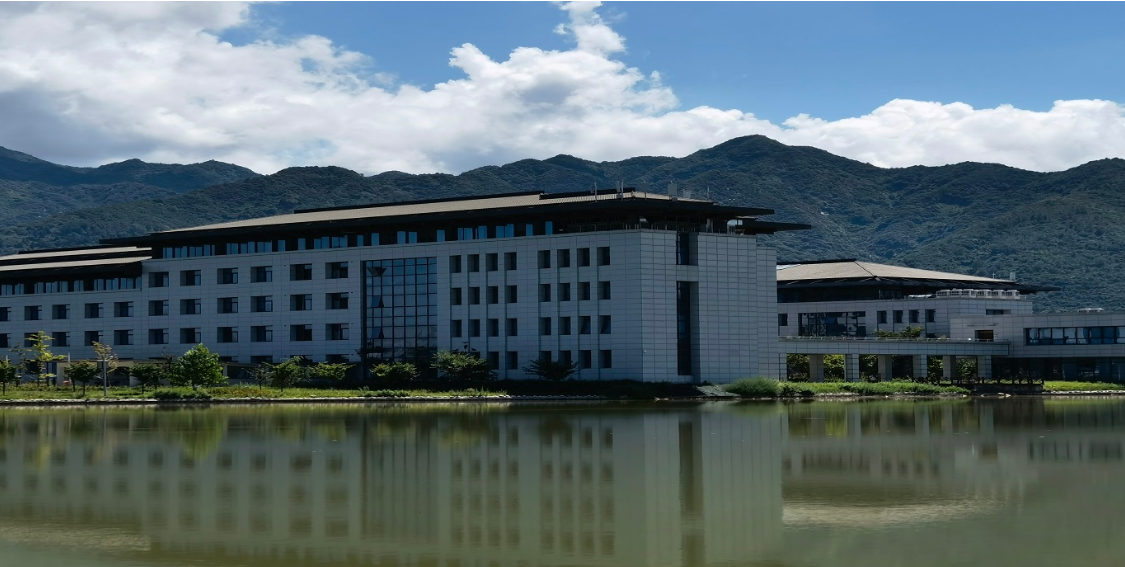柔性电子研究院
Institute of Flexible Electronics
柔性电子研究院(Institute of Flexible Electronics, IFE)成立于2017年10月,研究院设有机电子研究所、塑料电子研究所、生物电子研究所、印刷电子研究所、柔性电子产业促进中心以及柔性电子增材制造中心。2020年4月2日,国务院学位委员会正式批准增列“柔性电子学”交叉学科博士授权点。现有教职工140余人(含外籍教师、荣誉学衔专家),各类国家级、省部级青年人才60余人次,各类人才计划和青年学者100余人次,正教授及以上人员占专任师资总数的48%以上,全部核心成员具有多年海外学习和工作经历。中心(研究院)面向新一代信息显示、存储计算、数据加密、生物传感、健康医疗和可再生能源等应用领域,以柔性电子这一高度交叉融合的颠覆性科技形式为核心,拟解决柔性光电材料、半导体性质、器件物理机制、器件工艺和集成中的关键科学问题和核心技术难点。旨在通过解决柔性电子研究中的关键科学问题,孕育颠覆性技术,引领柔性电子基础研究和国际科技前沿,服务国家重大战略需求,助推以柔性电子为代表,包括人工智能、材料科学、泛物联网、空间科学、健康科学、能源科学、数据科学在内的八大关键核心技术与战略性产业的变革,实现“开道超车”和领跑全球。

Institute of Flexible Electronics (IFE) at Northwestern Polytechnical University is a comprehensive and interdisciplinary frontiers institute, which is led by the fellow of Chinese Academy of Science, Prof. Huang Wei, one distinguished scholar in organic electronics and flexible electronics. IFE aims flexible electronics (including organic electronics, plastic electronics, printing electronics, nano-electronics, biological electronics, etc.), a highly cross-integrated and disruptive discipline form as the research core, and takes the key scientific problems and technical difficulties in flexible photoelectric materials, semiconductor properties, device physical mechanism, device process and integration as the research objects. The institute aims to make both innovative and practical contributions to the application fields of new generation information display, storage computing, data encryption, biosensing, health care and renewable energy.
Institute of Flexible Electronics Website: http://ife.nwpu.edu.cn/English.htm
附件 Attachment:
Supervisor List for 2022 PhD Application Institute of Flexible Eletronics.xlsx
重要提示 Notice:
1. 附件为柔性电子研究院2022年专业信息表与可接收博士的导师信息表。
The attachments are the Major List and the Spervisor List that can accept the PhD students of the Institute of Flexible Electronics in 2022 Academic Year.
2. 请根据此表中导师的教师主页信息以及研究方向选择并联系与你研究方向一致或相似的导师,请不要群发邮件。
Please contact the supervisor according to the their researsh direction and Teacher Website Page information.
Do not send the MASS EMAIL.
3. 导师的邮箱域名为:@nwpu.edu.cn.
Please add: @nwpu.edu.cn after the email adress.
柔性电子研究院博士专业介绍
The PhD Major Introduction for the Institute of Flexible Electronics
一、 专业名称 Major:柔性电子学 Flexible Electronics
1. 研究方向及介绍 Research Direction and its introduction:
① 生物电子学 Bioelectronics
有机光电材料设计与合成借鉴最新发展的合成技术的最新发展,探索有机电子材料新的制备方法,实现有机电子材料的规模制造,系统阐明有机材料结构与性能的关系,建立调控有机电子材料性能的有效方法,为设计高性能有机光电材料提供指导。有机电子集成器件的研究探索提高有机电子器件性能的新机制,提升有机电子器件的性能和稳定性,为实现多种有机器件集成提供保障。建立大面积高质量有机薄膜器件的新方法、新工艺技术;发展全溶液加工制备有机电子器件的完整工艺技术,尤其是柔性电子器件,实现有机电子器件的低成本制造。开发多功能有机电子集成器件的新技术与新方法。
Organic electronics is a new interdisciplinary subject based on the preparation, characterizations, and applications of organic optoelectronic materials and related devices. Our main research directions are as follows:
To explore new preparation methods of organic optoelectronic materials; and realize the scale manufacturing of organic optoelectronic materials;
To clarify the relationship between molecular structure, aggregation morphology and optoelectronic properties of organic materials systematically; to establish new mechanism to regulate the properties of organic optoelectronic materials; and provide guidance for the design of high-performance organic optoelectronic materials;
To explore new mechanisms to improve the performance and stability of flexible organic optoelectronic devices, and provide guarantee for the integration of multiple organic devices;
To develop new technologies and methods for multi-functional flexible organic electronic integrated devices.
② 生物电子学 Bioelectronics
诊疗分子与器件.设计针对疾病标志物特异性小分子荧光探针,发展新型生物光电子器件,并基于此开发新型诊断器件,对疾病的早诊断具有重要意义,其在治疗评估以及临床新药研究中亦有重要作用。生物传感与健康监测.柔性生物传感是实现健康监测和人机交互的重要途径,对“面向人民生命健康”具有巨大意义,是未来万物互联的智能时代的关键技术。线粒体光学检测与调控.研究基于荧光小分子的高光-热转换率与精确靶向线粒体在相关疾病中的治疗以及诊断的新技术,开发适用自组装或包裹荧光小分子纳米递送平台. 柔性X射线成像与诊断.本项目致力于解决钙钛矿的铅毒性问题,开发高效、稳定无铅基钙钛矿基X射线探测材料,发展高性能柔性X射线探测器,实现生物体高分辨三维成像,实现疾病的早期诊断。5.激发态与光诊疗调控.光诊疗技术在提高癌症治愈率方面展现出不可替代的作用,但光诊疗材料的短缺严重限制了其发展。
Biomedical optoelectronics: To tackle the challenges in medicine, biology and biotechnology with the principles of optoelectronics, investigate the (opto)electronic phenomena and underlying mechanisms in biological processes, and explore the (opto)electronic applications in healthcare, biomedicine, environmental monitoring, food safety, and so on; Diagnosis and intervention of critical diseases: To uncover the pathogenesis of critical diseases such as cancers, cardiovascular and metabolic diseases, discover the biological structures and functions, advance macro-/micro-scale molecular diagnostics in an invasive manner, develop polymer-based strategies for drug delivery and pathogen regulation, and achieve effective intervention of critical diseases; Implantable/wearable bio-electronic devices: To develop wearable/implantable flexible sensors for prompt and precise health monitoring, prevention and intervention of critical diseases through real-time acquisition, information storage and transfer of biological data.
2. 专业核心课程名称 Core Courses:
《柔性电子学》 《Flexible Electronics》
《生物电子学》 《Bioelectronics》
《有机电子学》 《Organic electronics》
《印刷电子学》 《Printed electronics》
《塑料电子学》 《Plastic electronics》
《柔性电子表征方法》 《Flexible electronics characterization methods》
3. 有无先修课程要求 Whether has Prerequisite Courses: Yes and related in chemistry, biology, biomedical engineering, material science
4. 先修课程名称 Prerequisite Courses:
生物化学或生物学或生物医学工程概论
Courses related to the introduction to biochemistry or biology or biomedical engineering


